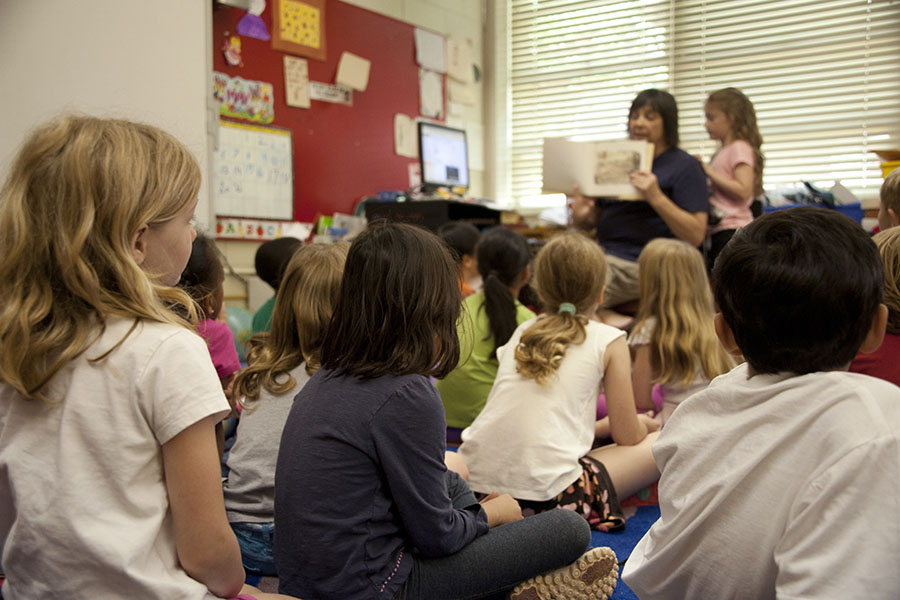
The state of reading and writing is a crisis in the United States. In 2019, only 35% of fourth-grade students performed at or above the National Assessment of Educational Progress reading-proficiency level.
Ignited by that somber statistic, the Florida Center for Reading Research (FCRR) at Florida State University is using its extensive network to advance the science of reading with the goal of improving student achievement for all children.
“Every single one of us knows a child who is struggling with reading,” said FCRR Director Nicole Patton Terry. “It may be your child. It might be a child you see next door in your community. It maybe even was you.”
That problem is the driving force behind FCRR’s work.
Over the past 20 years, FCRR has amassed a vast amount of knowledge about reading and what is needed to ensure that all children are reading at proficient levels. Its current research portfolio reflects the commitment to rigorous and relevant research and includes national, regional and local projects.
The Regional Educational Laboratory Southeast, for example, examines policy and practice throughout a six-state region, while the Village uses researcher-practitioner partnerships to advance reading outcomes for children in FCRR’s own backyard, Leon County.
FCRR is one of the centers featured as part of Florida State University’s “Big Bets” initiative, a program designed to highlight public impact science and connect the centers with partners and donors interested in their work.
“With ‘Big Bets,’ FSU is looking to focus on a few existing research centers already doing work that has the potential to be even more crucial in the future,” said Interim Vice President for Research Laurel Fulkerson. “The team at FCRR is conducting research with a big impact. Making sure every child knows how to read is a giant mission, but it is one that has such a tremendous return in changing the trajectory of people’s lives.”
Reaching beyond the lab is a major part of FCRR’s mission. The center’s researchers have produced a variety of next-generation language and literacy products to reach both learners and educators.
Yaacov Petscher, associate director of FCRR, developed a web application that assists teachers in projecting reading success in elementary-age students beyond the standard one-year period. The Earlier Assessment for Reading Success app allows a teacher to take one or more of their fluency scores for students and obtain a percent-change indicator of being a successful reader, not just in the current year but up to three years later.
Petscher also was part of a team from FCRR and the College of Social Work, with help from the National Center on Improving Literacy, that created “The Uncanny Chronicles.” The eight-issue comic book series follows Kayla, a young reader who confronts issues related to reading difficulties and illustrates how she interacts with the world and how the world interacts with her. “The Uncanny Chronicles” will soon be available nationwide as a graphic novel thanks to an agreement between FSU and Ventris Learning.
“The graphic novel is an excellent type of media to reach young people, parents, teachers, public and school library media specialists, and inform them about dyslexia,” said Robert Meyer, president of Ventris Learning.
For the FCRR team, “The Uncanny Chronicles” is a great example of how the center works across disciplines and industry to reach young readers. Patton Terry said that approach is essential in their overall work on literacy, not just one project.
“It requires a cross-sector approach,” she said. “We need a lot of people, with all hands on deck, working together toward the same direction of ensuring that children are learning and succeeding and thriving in their communities, their homes and their schools.”
The Florida Center for Reading Research (FCRR) has a long history of collaborating with scholars within the university system and around the world to conduct robust research, produce innovations, and engage educators, policymakers and stakeholders.
Established in 2002 by the Governor’s office and Legislature, FCRR is home to 10 tenured and tenure-track faculty members holding joint appointments with Florida State University’s College of Art & Sciences, College of Education, and the College of Social Work. In addition, FCRR has affiliate faculty in the School of Teacher Education, and the School of Communication Science and Disorders.
FCRR has learned that there is no single solution that will ensure that every child thrives when it comes to reading.
“With diverse voices, minds and experiences at the table, we can begin to unpack all of the many components that add up to a successful reader in any given context,” Patton Terry said. “There’s simply no way to do that in a vacuum.”




